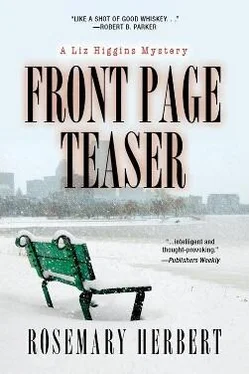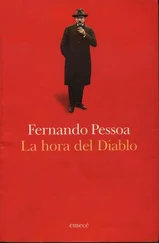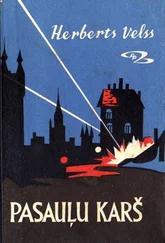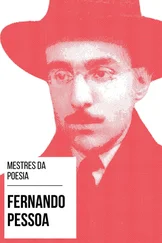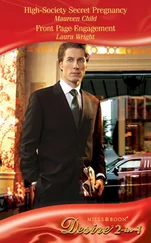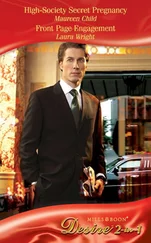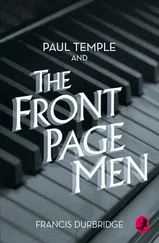“Please, allow me to help you,” the librarian said, turning on her PC and typing in her password with one finger, spelling out the word MEOW as Olga looked on.
In a minute, Monica had the call number and the information that the book was available on the second floor. She wrote the call number on a scrap of recycled paper and handed it to Olga. “I see you’ve noticed your daughter’s PC is gone. The police removed it. But have no fear, Mrs. Swenson, she never overused the Internet for personal searches or anything like that. Her reputation is secure.”
“Would it be all right if I took a look at the contents of her drawers? Perhaps there’s a little something I can take home to Veronica to cheer her.”
“I don’t see why not. The police have already taken what they want.”
When Olga Swenson looked shaken by this last remark, the librarian took the occasion to look pointedly at the clock and make her exit for the conference room. After a minute, Olga opened one of her daughter’s drawers, pulled it out thoroughly, and allowed it to drop to the floor.
Stepping around the mess, she sat down at Miss Phillips’s PC and moved the mouse. The screen saver photo of three cats seemed to melt away, revealing a screen cluttered with icons. One of them was labeled “Blister.” Apparently, the word was not a password. It was the list itself. Olga’s edginess turned to jubilation, until she moved the mouse to click on the icon. A box appeared on the screen demanding a password.
Congratulating herself on her powers of observation, she typed in the letters M , E , O , and W . But the blasted machine rejected the password. Suppressing a moan, she stood up to survey the room. Would there be a password list on hand somewhere?
Just then, Monica Phillips opened the door.
“You see, I am a butterfingers, too, in my current state of mind. I managed to dump the whole drawer!” Olga said.
“Perhaps it was because I startled you,” the librarian said. “My colleagues always accuse me of creeping up on little cat feet,” she said, slowly arranging her lips into a large smile. The action recalled the Cheshire cat in Alice in Wonderland . “I just came for the cake server. Ellen always kept it in her desk. Oh, I see it’s on the floor.”
“Allow me,” Olga said, picking up the implement and handing it to the librarian. Fortunately, the PC screen did not face the door. “I’ve been noticing your photos of three lovely cats. What are their names?”
“They are dears, aren’t they? The black-and-white “tuxedo” cat is Fred. The ginger cat is, of course, Ginger,” the librarian smiled proudly.
“Of course! For Fred Astaire and Ginger Rogers! How clever!” Olga enthused. “And what about that handsome fellow? What’s his name?”
“Actually, that’s a female. I named her Judy, after Judy Garland.”
It seemed a strange name choice for a Siamese cat.
“It’s because of her voice,” Miss Phillips went on. “Siamese cats often vocalize, you know. They actually speak—in their own language of course—as they go about their business. My Judy, though, does more than that. She seems to sing. I’ve got to admit, she’s my favorite.”
When Monica left the room with the cake server, Olga reseated herself at the PC; input the letters J , U , D , and Y , and was given instant access to the records under “Blister.” Then she met another roadblock, apparently put there to make the records somewhat more secure. Another box appeared on the screen asking for a library card number. It was not possible to see records listed by name. Confidently, she typed in the numbers 1 , 9 , 9 , and 2 . Veronica’s birth year.
A document headed with the name “Johansson, Ellen Swenson,” and filled with dates and book titles spread itself out before her eyes. It was too much to take down—or to take in. Recalling Liz’s instructions, Olga turned on the printer and used the PC’s mouse to click on the print icon. After the page printed out, she followed more instructions from Liz and closed the document until the desktop of icons appeared. Slipping the printed page into her purse, she turned to tidy up the spilled drawer. Along with a few pens and some pads of Post-it Notes, she found a twelve-inch ruler, decorated by Veronica with a hand-painted crown and letters spelling out the statement, “MY MOM RULES!!!” Placing the ruler in her purse, she made a quick survey of the rest of her daughter’s drawers. They contained some drawings by Veronica; a mug sporting a portrait of Virginia Woolf; some feminine supplies; a much-used, folded-up tote bag imprinted with the words, “So many books, so little time”; and a packet of Reese’s Pieces.
The items were predictable, mundane. But the emotions they stirred were not.
Olga Swenson sat down heavily in her daughter’s chair and sobbed.
When, at last, she made her way out of the office, she could hear one voice sounding from the conference room. “Ellen’s mother is a wreck. She’s so jittery, the poor woman can’t open a drawer without pulling it out completely and spilling it all over the floor. She’s so bereft, she’s even going to read Gone With the Wind because it’s the last book she thinks Ellen read. Pretty sad title in the circumstances, don’t you think?”
“Really, Monica,” another voice said. Olga recognized it as Lucy Gray’s. “Surely it’s too soon to speak of Ellen as if we’ll never see her again. And as for Gone With the Wind , I hardly think that’s Ellen’s reading taste.”
“Well, I have that from Mrs. Swenson herself,” Monica said, rising to the conversational challenge. “And she told me Veronica is hopeless unless she’s with her grandmother’s dog, constantly eating chocolate. It’s a wonder Mrs. Swenson had the presence of mind to bring us these cookies!”
Fed up with the whole charade, despite its success, Olga Swenson left the library without going to the trouble of finding and signing out a copy of Gone With the Wind . Only when she reached her car did she remember she’d forgotten to turn off Miss Phillips’s printer. Unable to face hearing another word of gossip about her loved ones, she settled into her car. Turning her key in the ignition, she drove a short distance and parked her car on Fenwick Street. Then, using her key, she let herself into her daughter’s house.
Taking off her coat, she made her first uncharacteristic move. Instead of carefully hanging the garment on a hanger in the hall closet, she draped it over the back of an armchair. Then, she did something else that was highly unusual for her. After taking a teacup and saucer into the kitchen with the intention of making tea, she filled the cup halfway with bourbon instead.
Whispering the words “Forget me not,” she then settled into Ellen’s favorite chair in the living room and unfolded the list of books that revealed her daughter’s recent library borrowing habits. Studying the titles, she was glad her cup held bourbon.
Meanwhile, in the Banner ’s newsroom, Liz began trying to locate Dr. Douglas Mayhew, former headmaster of the Wharton Alternative School. Using old clips provided by the Banner ’s ever-helpful librarian, Conan Forbes, Liz found Mayhew’s name mentioned in connection with the opening of the school in 1960, in several stories about fundraising and about the philosophy of teaching troubled teens, and regarding the school’s closing in 1975. Apparently, after his stint as headmaster, Mayhew was not a newsmaker since his name appeared neither in more Boston-area newspaper clips nor in Internet citations.
In her work, Liz often found the requirement of noting people’s ages not just a thankless task but one that sometimes caused her sources to balk or clam up. Early on, she learned to ask for ages only after securing the quotes she needed from people. Now, she silently thanked the reporters who had done their duty and reported Mayhew’s age at the time of their writing. On one Internet site, she was able to take the many Douglas Mayhews with listed telephone numbers in the Northeast and narrow the search by age. This left just five, including two in Maine (Douglas Mayhew, Junior and Senior), one in Worcester, one on Cape Cod, and one in Brookline, a city bordering Boston.
Читать дальше
